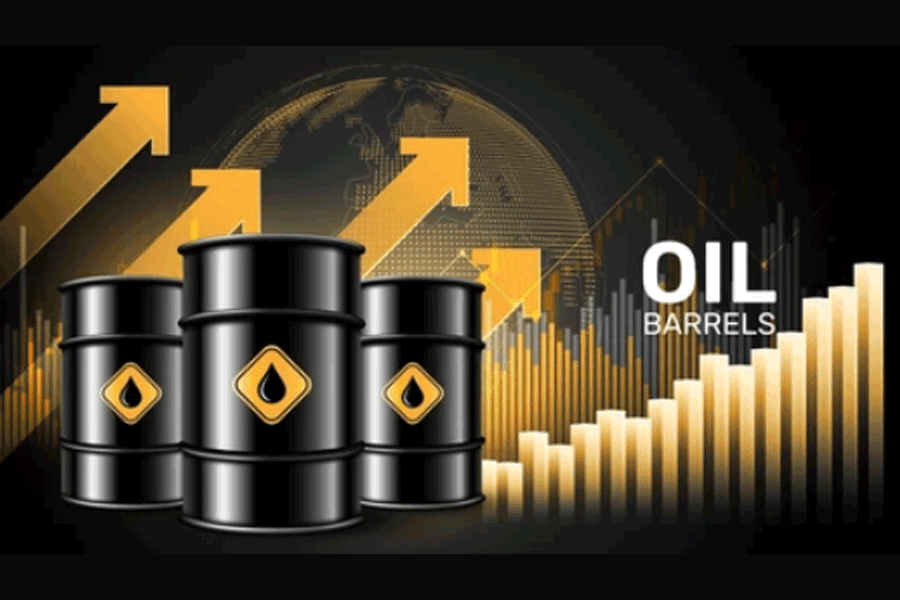Indian state refiners have stopped buying Russian oil in the past week as discounts narrowed this month and US President Donald Trump warned against purchasing oil from Moscow, industry sources said.
Trump has hit out at India and its trading partner Moscow, hours after announcing 25 per cent tariffs on Indian imports. The American leader said he does not care about India's trade dealings with Russia and that the two "can take their dead economies down together".
"I don't care what India does with Russia. They can take their dead economies down together, for all I care. We have done very little business with India, their tariffs are too high, among the highest in the world. Likewise, Russia and the USA do almost no business together. Let's keep it that way," he said in a post on Truth Social.
India, the world's third-largest oil importer, is the biggest buyer of seaborne Russian crude.
The country's state refiners - Indian Oil Corp (IOC.NS), opens new tab, Hindustan Petroleum Corp (HPCL.NS), Bharat Petroleum Corp (BPCL.NS), and Mangalore Refinery Petrochemical Ltd (MRPL.NS), - have not sought Russian crude in the past week or so, four sources familiar with the refiners' purchase plans told Reuters.
IOC, BPCL, HPCL, MRPL and the federal oil ministry did not immediately respond to Reuters' requests for comment.
The four refiners regularly buy Russian oil on a delivered basis and have turned to spot markets for replacement supply - mostly Middle Eastern grades such as Abu Dhabi's Murban crude and West African oil, sources said.
Private refiners Reliance Industries (RELI.NS), and Nayara Energy are the biggest Russian oil buyers in India, but state refiners control over 60% of India's overall 5.2 million barrels per day refining capacity.
On July 14, Trump threatened 100 per cent tariffs on countries that buy Russian oil unless Moscow reaches a major peace deal with Ukraine.
The White House had previously warned India about its high average applied tariffs - nearly 39 per cent on agricultural products - with rates climbing to 45 per cent on vegetable oils and around 50 per cent on apples and corn.
"While India is our friend, we have, over the years, done relatively little business with them because their Tariffs are far too high," Trump wrote in the Truth Social post on July 30.
"They have always bought a vast majority of their military equipment from Russia, and are Russia’s largest buyer of ENERGY, along with China, at a time when everyone wants Russia to STOP THE KILLING IN UKRAINE — ALL THINGS NOT GOOD!"
In response to his Truth Social post, the Indian government said it was studying the implications of Trump's announcements and remained dedicated to securing a fair trade deal.
"India and the US have been engaged in negotiations on concluding a fair, balanced and mutually beneficial bilateral trade agreement over the last few months. We remain committed to that objective," it said.
Russia continued to be the top oil supplier to India during the first six months of 2025, making up 35 per cent of overall supplies.
The United States, the world's largest economy, currently has a $45.7 billion trade deficit with India, the fifth largest.
White House economic adviser Kevin Hassett said Trump has been frustrated with the progress of trade talks with India and believed the 25 per cent tariff announcement would help the situation.
The new U.S. tax on imports from India would be higher than on many other countries that struck deals with the Trump administration recently. The tariff on Vietnamese exports is set at 20 per cent and Indonesia's at 19 per cent, while the levy for Japanese and European Union exports is 15 per cent.
Trump strikes oil deal with Pakistan
On Wednesday, Trump also said he had made a deal with India's arch South Asian rival Pakistan to develop that country's oil reserves. "Who knows, maybe they'll be selling Oil to India some day," Trump wrote on Truth Social.
Since India's short but deadly conflict with Pakistan, New Delhi has been unhappy about Trump's closeness with Islamabad and has protested, which has cast a shadow over trade talks.
"Politically, the relationship is in its toughest spot since the mid-1990s," said Ashok Malik, partner at advisory firm The Asia Group. "Trust has diminished. President Trump's messaging has damaged many years of careful, bipartisan nurturing of the U.S.-India partnership in both capitals."
Besides farm products access, the US had flagged concerns over India's increasingly burdensome import-quality requirements, among its many non-tariff barriers to foreign trade, in a report released in March.
The new tariffs will impact Indian goods exports to the US, estimated at around $87 billion in 2024, including labor-intensive products, such as garments, pharmaceuticals, gems and jewelry, and petrochemicals.










